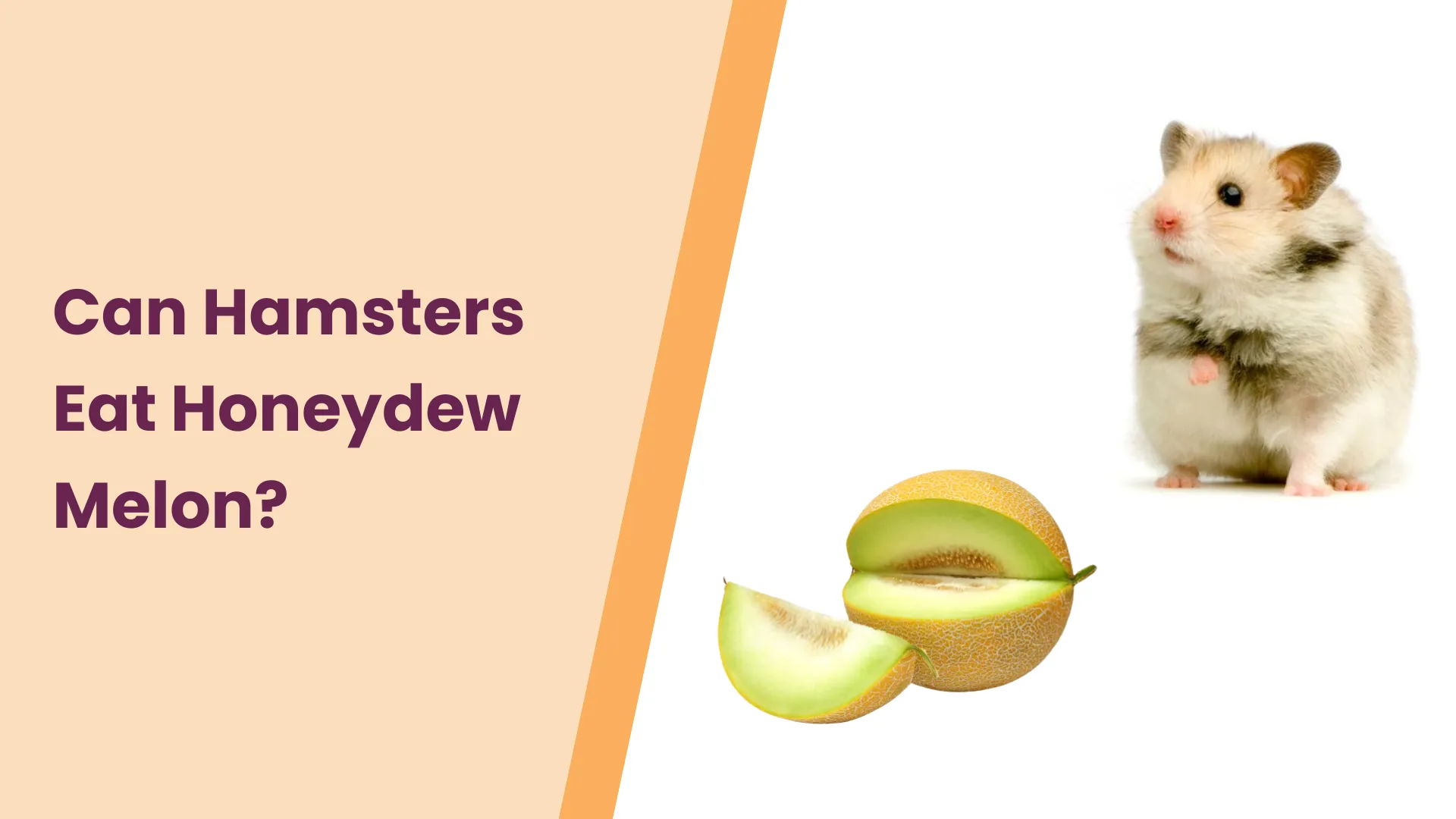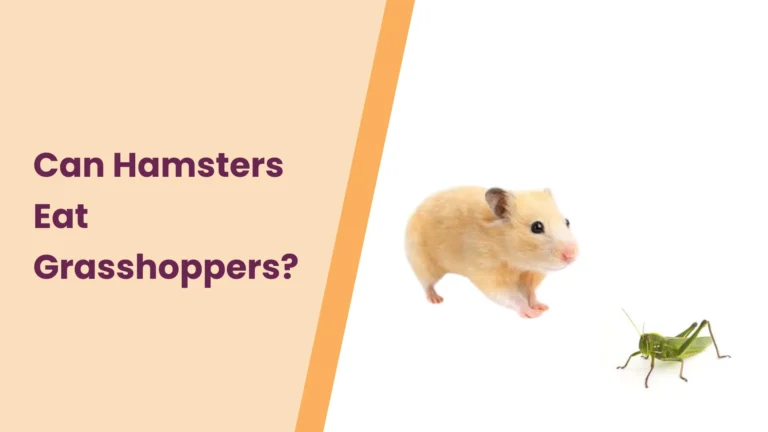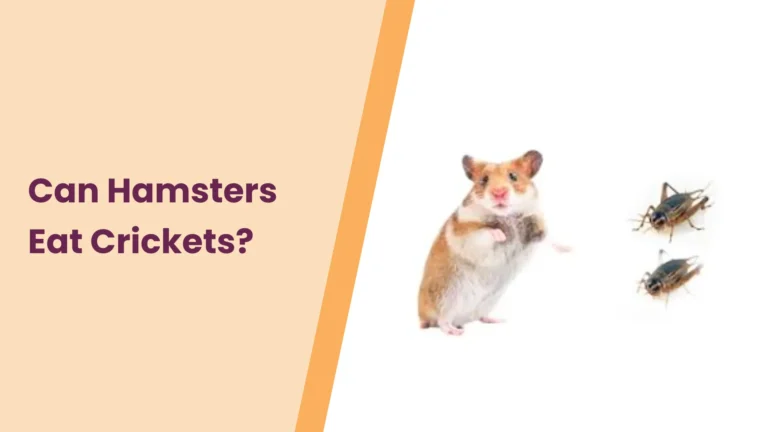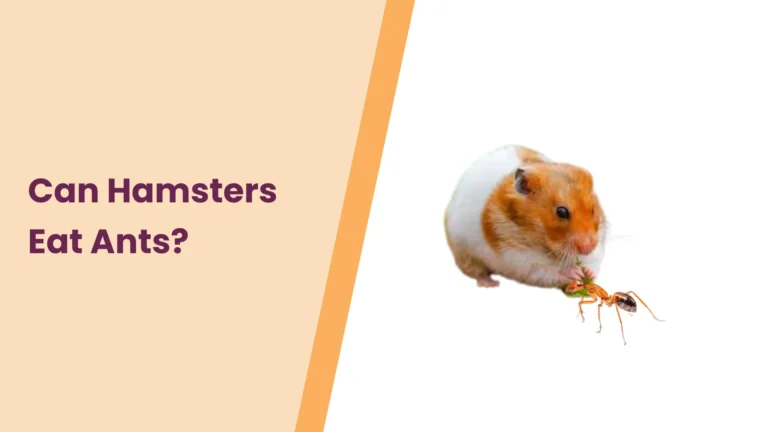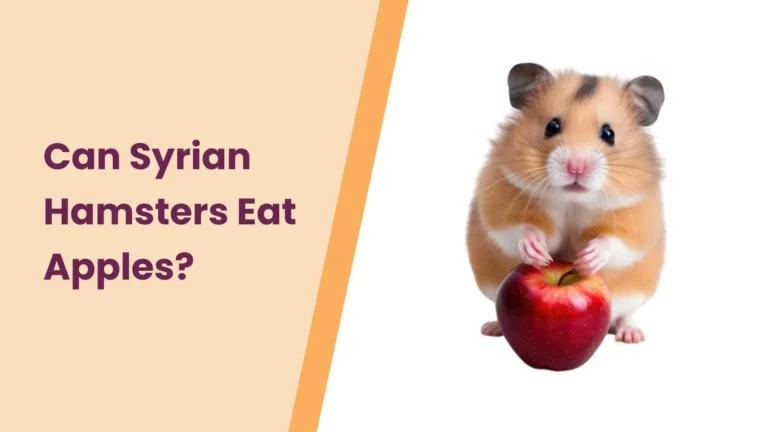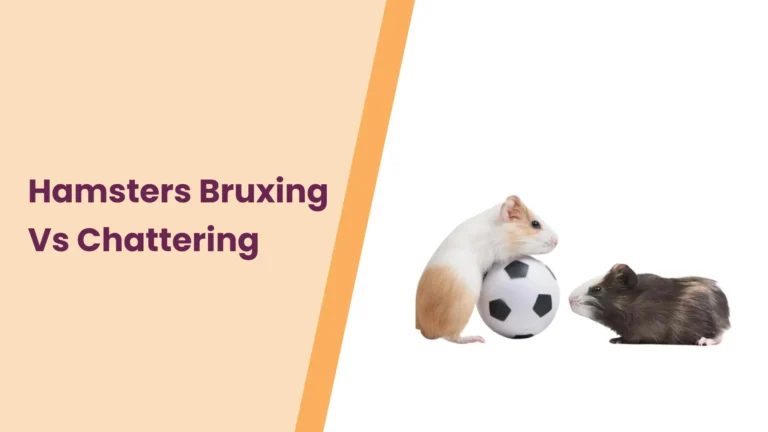Can Hamsters Eat Honeydew Melon – All You Need To Know
Picture this – you’ve just brought home a charming little hamster, and you want to ensure they enjoy a diet as delightful as their personality. As a devoted hamster owner, you’re undoubtedly curious about what foods are safe for your furry friend. One question that often arises in the world of hamster care is, “Can Hamsters Eat Honeydew Melon?“
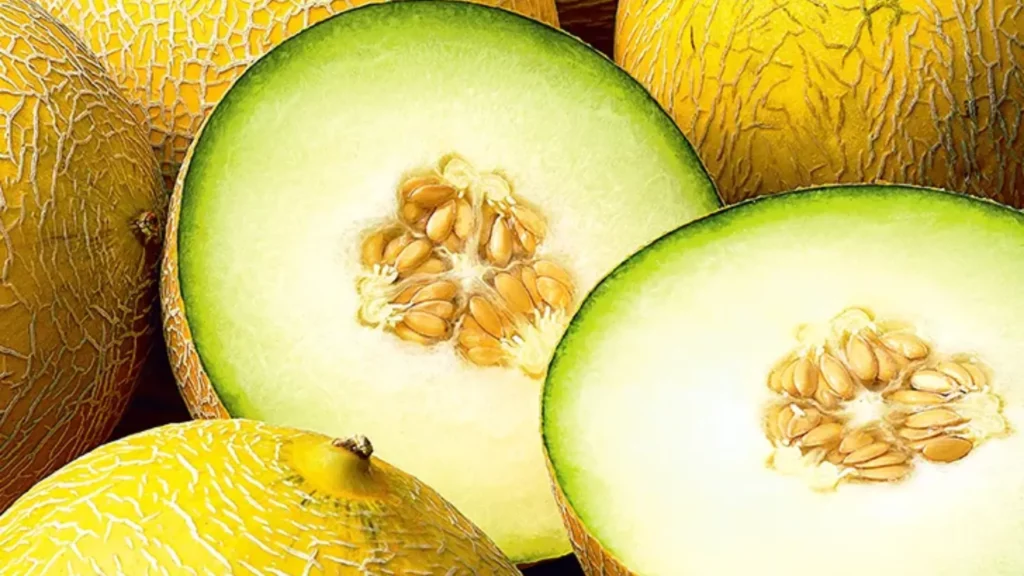
We all know that hamsters adore their treats, but when it comes to introducing new foods, we must tread carefully. In this guide, we’ll explore the wonderful world of hamster nutrition and uncover the facts about honeydew melon – a sweet and refreshing fruit that might just make your hamster’s day.
So, let’s embark on this culinary adventure to discover whether honeydew melon can find a place on your hamster’s menu.
The Hamster Diet Overview
When it comes to taking care of your beloved hamster, their diet plays a pivotal role in ensuring their health and happiness. Just like us, these tiny furballs need a well-balanced diet to thrive. As responsible hamster parents, understanding the basics of hamster nutrition is the first step in providing them with the best care possible.
Hamsters, being omnivores, have diverse dietary requirements. Their diet should encompass a variety of food groups, including fresh vegetables, fruits, high-quality commercial hamster pellets, and, of course, water. This blend of nutrients provides them with the energy and essential vitamins and minerals they need for their active and inquisitive lives.
Fruits, such as honeydew melon, are often considered as tasty treats for hamsters. However, it’s crucial to remember that treats should be just that – occasional indulgences. A well-rounded hamster diet should primarily consist of high-quality pellets to ensure they receive all the essential nutrients. Fruits and vegetables should be offered sparingly and in moderation, making honeydew melon a candidate for special occasions rather than a staple.
So, while your hamster’s diet can include a delightful array of foods, it’s essential to maintain balance and moderation to ensure their overall well-being. In the sections that follow, we’ll dive deeper into the specifics of honeydew melon, its nutritional profile, and how to safely incorporate it into your hamster’s diet.
Hamsters Can Eat Honeydew Melon
So, the answer to our question, ‘Can Hamsters Eat Honeydew Melon?‘ is a big YES! Known for its sweet and refreshing flavor, Honeydew Melon is a fantastic source of vitamins and minerals. It’s brimming with vitamin C, which is essential for your hamster’s overall health. This vitamin helps boost their immune system and aids in preventing illnesses.
Additionally, honeydew melon contains vitamin A, promoting good eyesight and healthy skin. These vitamins can be a wonderful addition to your hamster’s diet in moderation.
But the goodness doesn’t stop there. Honeydew melon also boasts a high water content, helping to keep your hamster hydrated. Staying adequately hydrated is crucial for these tiny creatures, and the water content in honeydew melon can be a refreshing source of hydration, especially during warm months.
However, like all good things in life, honeydew melon should be offered sparingly. Its natural sugars can contribute to excess weight gain if consumed excessively, which may lead to health issues. Moderation is the key to ensuring your hamster enjoys the benefits without the drawbacks.
So, whether you’re considering introducing a slice of honeydew melon as a special treat or just curious about its nutritional value, this delightful fruit has some attractive qualities to offer your hamster, provided it’s part of a balanced diet.
Moderation and Serving Sizes
As the saying goes, “all good things in moderation.” This age-old wisdom holds true when it comes to introducing new foods into your hamster’s diet, including the delectable honeydew melon. While honeydew melon offers some nutritional benefits, it’s essential to remember that hamsters are small creatures with equally small tummies, and too much of a good thing can lead to health issues.
When considering giving your hamster a taste of honeydew melon, it’s crucial to practice portion control. Start with a tiny serving, perhaps no larger than a thumbnail, to gauge their interest and any potential reactions. Observe your hamster closely to ensure they tolerate this new treat well.
If your hamster responds positively and shows no signs of digestive upset, you can gradually increase the serving size. However, it’s best to limit the amount of honeydew melon to no more than a few small pieces per week. This ensures that your hamster benefits from the vitamins and hydration without overloading their system with natural sugars.
While the sweet taste of honeydew melon may tempt your furry friend, remember that their primary source of nutrition should be high-quality hamster pellets. These pellets are specially formulated to meet their dietary needs, and any additional foods should complement, not replace, their staple diet.
Safety Considerations
The safety of our beloved hamsters is always paramount, and when it comes to introducing new foods like honeydew melon, there are some important considerations to keep in mind. While honeydew melon can be a tasty and nutritious addition to your hamster’s diet, it’s essential to be vigilant about potential hazards.
One primary concern with honeydew melon is its seeds. Most melons have seeds, and hamsters should not consume them. Seeds, when ingested, can pose choking hazards or cause digestive blockages. To mitigate this risk, ensure that any honeydew melon you offer to your hamster is seedless. Alternatively, you can carefully remove the seeds before serving the fruit to your pet.
Another safety concern to be aware of is pesticide residues. Like any fruit, honeydew melon can carry pesticide residues from cultivation. To reduce this risk, consider purchasing organic honeydew melon or, if using conventionally grown fruit, wash it thoroughly to remove any potential residues.
Organic options are generally a safer choice for your furry friend. Remember that freshness is key. Offer only ripe, fresh honeydew melon to your hamster. Overripe or spoiled fruit can upset your pet’s stomach and should be avoided. Lastly, if you’ve never given honeydew melon to your hamster before, it’s crucial to monitor their reaction.
Some hamsters may have food sensitivities or allergies, and it’s essential to be alert to any adverse effects. Look out for signs like diarrhea, vomiting, or a change in behavior. If you notice any concerning symptoms, it’s best to discontinue feeding honeydew melon and consult your veterinarian.
Signs of Allergic Reactions or Digestive Issues
The well-being of our hamster companions is of utmost importance, and part of that responsibility involves being vigilant about their health when introducing new foods like honeydew melon. While honeydew melon can be a delightful addition to their diet, it’s essential to keep a close watch on your pet for any signs of allergic reactions or digestive issues. Hamsters, like humans, can have food sensitivities or allergies.
When offering honeydew melon for the first time, observe your hamster carefully for any unusual reactions. Common signs of allergic reactions or digestive upset may include diarrhea, vomiting, lethargy, or changes in behavior. If you notice any of these signs, it’s crucial to take action promptly.
Remove the honeydew melon from your hamster’s diet and consult your veterinarian. They can provide guidance on managing any symptoms and may recommend alternative fruits or vegetables that are better suited to your hamster’s digestive system. It’s worth noting that while honeydew melon is generally safe for many hamsters, individual tolerance can vary. Some hamsters may tolerate it well, while others may be more sensitive.
This is why it’s essential to introduce new foods in small amounts, monitor your hamster’s response, and adjust their diet accordingly. Remember, your hamster’s health and well-being are the top priorities, and a responsible approach to their diet ensures they continue to enjoy a happy and healthy life. By staying attentive to their reactions and addressing any issues promptly, you can make informed decisions about what’s best for your furry friend.
Alternatives to Honeydew Melon
While honeydew melon can be a delightful treat for your hamster, it’s essential to provide them with a variety of safe and nutritious options to keep their diet balanced. If you’d like to explore other fruits and vegetables that can complement your hamster’s nutritional needs, there’s a wide array of alternatives to consider. These options can provide your furry friend with both taste and health benefits.
1. Apples: Apples, when sliced into small, bite-sized pieces without seeds or core, can be a great choice for hamsters. They’re a good source of vitamins and fiber.
2. Carrots: Fresh carrots, rich in vitamin A and fiber, can be a crunchy and nutritious addition to your hamster’s diet. Cut them into small, manageable pieces.
3. Cucumbers: Cucumbers are hydrating and low in calories, making them a refreshing choice for your hamster. Slice them into thin rounds.
4. Blueberries: Blueberries are tiny, antioxidant-rich fruits are excellent for your hamster in small quantities. They provide a burst of flavor and nutrients.
5. Broccoli: A small floret of broccoli can offer vitamins and fiber to your hamster. It’s essential to introduce it gradually, as some hamsters may need time to adjust to its taste.
6. Strawberries: Strawberries are another delightful fruit to consider, but offer them sparingly due to their natural sugar content. Remove the green tops and cut them into small pieces.
7. Spinach: Fresh spinach leaves can provide a dose of vitamins and iron for your hamster. Offer small amounts, as spinach can be high in oxalates.
When introducing any new foods, including the alternatives listed above, remember to do so in moderation and monitor your hamster for any adverse reactions. Each hamster’s taste and tolerance can vary, so it’s essential to discover what works best for your individual pet.
Conclusion
In the realm of hamster care, the question of whether hamsters can eat honeydew melon has been explored and answered. This sweet and hydrating fruit can indeed be a delightful addition to your furry friend’s diet, but it’s important to approach it with responsibility and moderation.
Remember that a hamster’s primary source of nutrition should consist of high-quality hamster pellets. Treats like honeydew melon should be occasional and small, ensuring that your pet receives the essential vitamins and minerals they need without overloading on natural sugars.
Additionally, safety considerations play a crucial role. Remove seeds, choose organic options or wash thoroughly to minimize pesticide exposure, and always provide fresh, ripe melon. Keep a watchful eye on your hamster for any signs of allergies or digestive issues when introducing new foods. If you’re ever in doubt about your hamster’s diet or health, consult with your veterinarian for professional guidance.
“We’re not just a source of information; we’re a community of hamster enthusiasts who share a passion for the well-being of our furry companions. We’d love to hear about your experiences with honeydew melon or any other treats your hamster enjoys.
Have questions, concerns, or heartwarming stories to share? Don’t hesitate to drop a comment below; your insights can be valuable to fellow hamster parents. If you found this article helpful and think it could benefit others, consider sharing it on your favorite social platforms.
The more we share, the more we can assist fellow hamster lovers in giving their pets the best care possible. Let’s spread the love and knowledge about responsible hamster nutrition and ensure our little friends live their happiest, healthiest lives!” – Hamsterpit.

